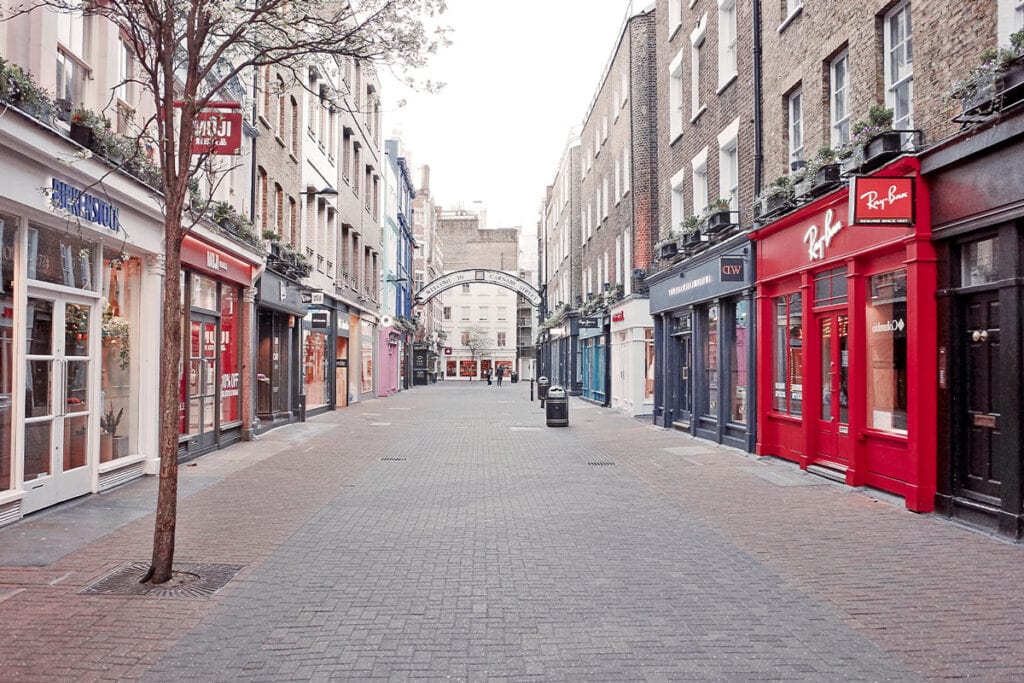How Covid-19 has altered the Climate Change Committee Progress Report 2020
Before Covid-19, the UK was determined to reach net zero, and take a global lead on decarbonisation. So how has the pandemic affected that goal? What steps are we taking to implement legislation and economic stimulus in light of the virus?

Alongside 200 other businesses, Buro Happold are co-signatories of Aldersgate Group letter, calling for the government to focus recovery funding on measures which help meet our climate goals.
Partner Alasdair Young and Graduate Energy Engineer Martin Hulme take a close look at the recently published UK’s Committee on Climate Change (CCC) 2020 progress report, to see whether the government is on the right track.
A green and resilient recovery
The CCC report focuses on recommendations to individual government departments on how to achieve a resilient and green recovery post pandemic, as well as achieving net-zero. As president of both the delayed COP26 summit in Glasgow and the G7 in 2021, the UK has a remarkable opportunity to take the lead on global decarbonisation. We can demonstrate that an economic recovery from Covid-19 can and must be aligned with the fight against climate change. It’s clear that the actions to combat climate change will accelerate the recovery from the Covid-19 pandemic, and that the two should not be seen as separate issues.
The CCC recommend low-carbon and climate adaptation “green stimulus” measures that fulfil both short-term recovery needs and longer-term economic productivity and net-zero requirements. Immediate action includes protecting work and businesses, restoring confidence and stimulating spending, for example, through domestic construction projects such as insulation retrofitting and walking/cycling infrastructure. Longer term, the CCC wants us to invest in emerging low carbon and adaption technologies, to help make the transition to a net zero, highly-efficient and more resilient economy.
What does this mean for the built environment?
Buildings contribute approximately one fifth of the UK’s carbon emissions, playing a major part in the report’s recommendations. According to the CCC, “building and heating policy continues to lag behind what is needed”, and in the coming year, a step change is required in ambition and delivery for emissions reductions. This means ambitious targets from the government through the Future Homes Standard (which will update Part L and F of building regulations) and The Buildings and Heat Strategy, as summarised by the CCC below.
The Buildings and Heat Strategy, due later this year, must take low-carbon heating from a niche market in the UK to the dominant form of new heating installation by the early 2030s. It should be supported by a national effort to improve the energy efficiency of UK buildings along with ensuring their safety and comfort as the climate warms.
Committee on Climate Change
If the new policies match both intentions and CCC recommendations, the Future Homes Standard will mean that new homes must be built to be zero-carbon from 2025. Buro Happold welcomes this; we have committed to making all of our new-build projects net-zero from 2030.
The Buildings and Heat Strategy must provide a clear strategy to how we can eliminate emissions from buildings over the next 30 years. The strategy includes measures such as:
- Trajectories of efficiency standards and carbon performance
- Funding to make low/zero-carbon heat pay, as well as rebalancing of fuel taxation, clarity on replacement for RHI, policy to support deployment of heat networks and incentives which consider the lifecycle of buildings e.g. reduced stamp duty targeted at the point of sale/purchase for efficient buildings
- Enabling measures such as retraining schemes and innovation funding
- Actions to drive immediate progress such as programmes to decarbonise the public estate which drive supply chains and innovation.
Buro Happold welcomes the forthcoming publication of this strategy but it must be ambitious. We are well placed to guide our clients through this transition to low and zero carbon and are already advising on multiple net-zero buildings, campuses and city scale energy networks.

Image: Alan McAteer
CCC report compared to other countries
As noted by Chris Goodall, author of What we need to do now: For a Zero Carbon Future, there is a distinct lack of international perspective in the CCC report. Although brief mention is made of recent economic stimulus packages released in Germany, France and Canada, there is no discussion or comparison of climate policies or technologies and their effectiveness abroad.
Buro Happold’s international presence allows us to draw on experience from many different countries and we will be sure to compare and participate in actions taken throughout the world.
In New York, strong policy on minimum building standards is driving a potentially multi-billion market of investment in building retrofit. In the EU, Germany hold the EU council presidency for the next six months, with Angela Merkel having already called for a green recovery plan. EU leaders are due to agree to an interim 2030 climate target by the end of the year, and Buro Happold will be closely following the action and advising on its impact for our clients in Europe, as well as further afield. We must not miss the opportunity to use the response to Covid-19 pandemic to address the even greater crises of global heating and biodiversity loss.
Caution is necessary; the UK Prime Minister’s “Build, build, build” reform announcement in early July 2020 seems to focus on deregulating parts of the planning system, raising the potential danger of lower environmental standards in the wake of Covid-19. We are therefore keenly following developments and hope the government will push through stimulus measures that enable a green and resilient recovery.

Image: Sean Pollock Photography






